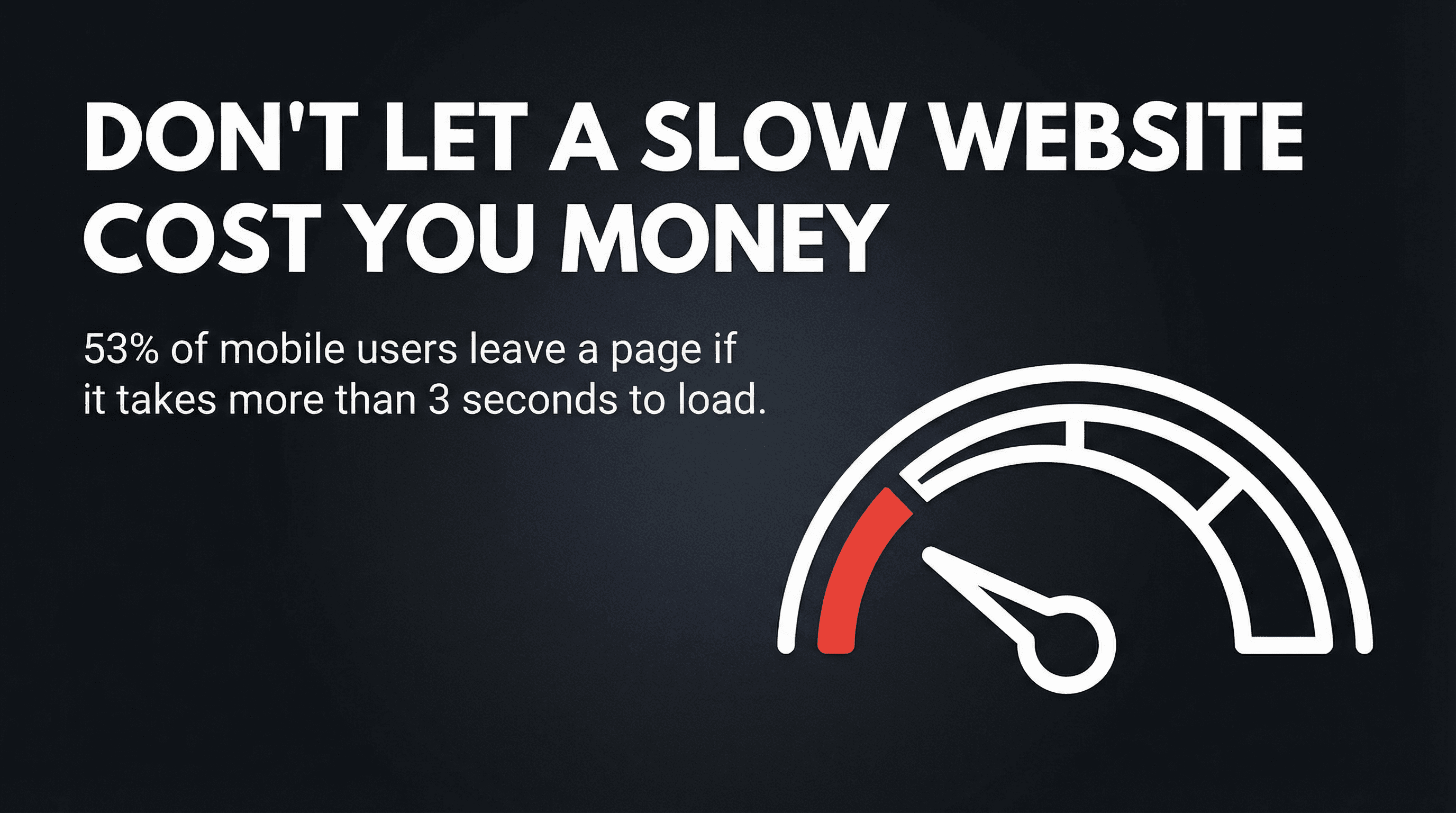Your website is more than just an online presence—it's your digital storefront. If your site is sluggish, you're not just frustrating visitors; you're also losing potential revenue. In today's fast-paced digital world, every second counts.
The High Cost of a Slow Website
According to Google, 53% of visits are abandoned if a mobile site takes longer than 3 seconds to load. Think about that for a moment: more than half of your potential customers might be leaving your site before they even see what you have to offer. Imagine if someone drove by your physical storefront and found the door locked—chances are, they wouldn't wait around. The same principle applies online. A slow website signals to users that your business may be inefficient or unreliable, prompting them to look elsewhere.
Real-World Impact
I often come across websites that struggle with loading times. For instance, I recently encountered a site that took nearly 7 seconds to load on a mobile device. In the digital age, those extra seconds translate directly into lost visitors and missed opportunities for conversions. Every additional moment your site takes to load chips away at your credibility and your bottom line.
Common Culprits Behind Slow Loading Speeds
There are several small, often-overlooked factors that can add up to a big problem. Some common issues include:
- Image Formats: Traditional image formats like JPG and PNG can be bulky. Switching to more efficient formats like WebP can significantly reduce load times.
- Lazy Loading: Instead of loading all content at once, lazy loading allows your website to load images and other resources only when they're needed. This can dramatically improve performance on mobile devices.
- Optimizing CSS and JavaScript: Streamlining your CSS and JS files by removing unnecessary code and compressing the rest can speed up your site.
Tools to Diagnose and Improve Website Performance
Thankfully, there are tools available to help you pinpoint the issues affecting your website's performance. Google's PageSpeed Insights is an excellent resource for identifying problem areas and receiving actionable recommendations. Alternatively, you can get a comprehensive view of your site's performance at PageReflect.
These tools not only highlight what's slowing your site down but also provide step-by-step suggestions to optimize performance. They break down the elements that are causing delays, giving you the insights needed to take corrective action.
Taking Action: Incremental Improvements
Improving your website speed isn't about one big overhaul—it's about making a series of small, incremental changes. Start by:
- Converting Image Formats: Swap out heavy JPG and PNG images for lightweight WebP versions.
- Implementing Lazy Loading: Ensure that images and other resources load only as the user scrolls.
- Optimizing Code: Refine and compress your CSS and JavaScript files to eliminate unnecessary delays.
By tackling each of these areas, you'll gradually reduce your website's loading time, enhancing both the user experience and your conversion rates.
When to Reach Out for Help
Even with these tools and techniques, you might come across problems that seem too complex to handle on your own. If you find yourself stuck, don't hesitate to reach out. Whether you contact me directly or get in touch with the team at Blackjay, professional assistance can make all the difference in turning your slow website into a fast, efficient digital storefront.
Conclusion
In the world of online business, speed matters. A slow website not only drives away potential customers but also erodes your credibility and ultimately, your revenue. By understanding the impact of load times, utilizing performance tools, and making incremental improvements, you can ensure your website works for you—not against you.
Take action today, check your website's performance, and start optimizing. Remember, every second counts!

Colin Lawless
Founder & Developer
Happy to answer any questions at colin@blackjay.io or via telephone at (603) 805-0919.
